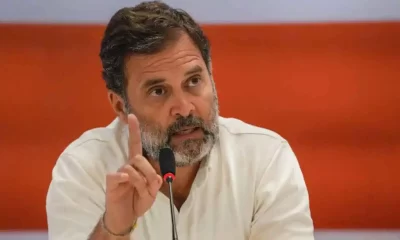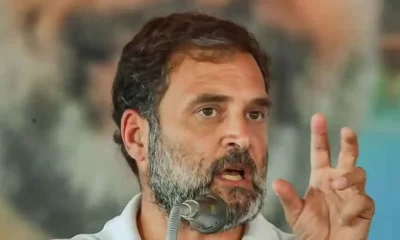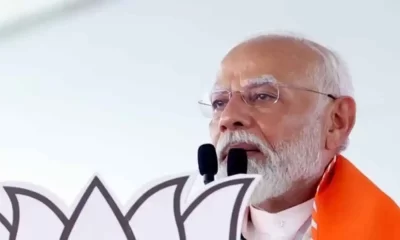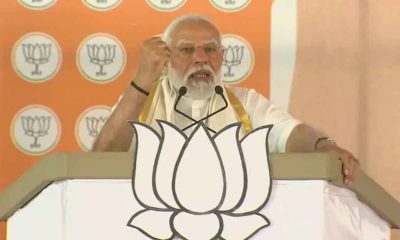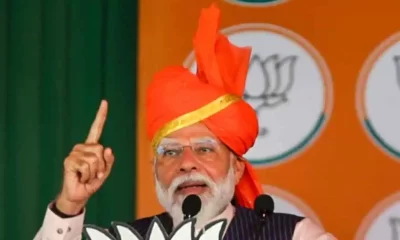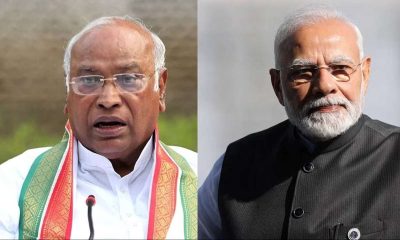India News
RTI Amendment Bill that Modi Govt wants will render the law useless

Modi government’s proposed move to amend the Right to Information (RTI) law to expand government control over the information commissioners is facing stiff resistance from the Opposition, intellectuals and activists who say it will render it useless.
After putting information about political funding beyond the pale of public scrutiny, this is the second major move by this government against transparency and accountability.
The proposed changes will involve the salaries and tenures of Information Commissioners at the states and centre, which, activists say, is a coercive measure that will interfere with their freedom to make independent decisions.
The Congress has said the BJP-led central government is destroying institutions and legislations of transparency and accountability in the country.
Party chief Rahul Gandhi tweeted, “Every Indian has the right to know the truth. The BJP believes the truth must be hidden from the people and they must not question people in power. The changes proposed to the RTI will make it a useless Act. They must be opposed by every Indian.”
Challenging the changes, the Opposition said it is committed to fighting any “attempt” by the Centre to “dilute” the Act and resist any amendments to it.
The “Right to Information (Amendment) Bill, 2018” proposes that information commissioners – – who currently have five-year tenures – have “terms as may be prescribed by the central government”.
Their salaries, instead of being on par with that of Election Commission officials – will be decided by the Central government.
Government sources said it was suggested that it is not good practice to put Information Commissioners on par with Election Commissioners. Justifying this on basis of legal nitpicking rather than the stated, express purpose of the office, they said the Election Commission is a constitutional body responsible for free and fair elections, but the Information Commission is a statutory body formed to look into complaints and requests for information under the RTI.
Stating “objects and reasons” for these amendments, the government has said, “The functions being carried out by Election Commission of India and the Central, and State Information Commissions are totally different… Hence their status and service conditions need to be rationalised accordingly.”
Extensive protests have been held in Delhi and other parts of India since the government listed the bill for “introduction, consideration and passing” in the monsoon session. The protests were attended not only by RTI activists, but anti-corruption workers and the relatives of people who were killed while exposing corruption across the country.
Lack of information about the proposed changes even pushed activists to file an RTI petition regarding the contents of the bill.
The Congress, the Left, the Trinamool Congress, Arvind Kejriwal’s Aam Aadmi Party and Lalu Yadav’s Rashtriya Janata Dal have said they will oppose any move to dilute the RTI Act.
Currently, the salaries and tenures of central and state information commissioners are statutorily protected as they are provided in the RTI Act.
Anjali Bhardwaj of National Campaign for People’s Right to Information (NCPRI) said the amendment “will fundamentally weaken the institution of the commissions as it will adversely impact their ability to function in an independent manner. The status conferred on commissioners under the RTI Act is to empower them to carry out their functions autonomously and require even the highest offices to comply with the provisions of the law.”
A report in The India Express (IE) quoted former Central Information Commissioner (CIC) Shailesh Gandhi as saying that the move seemed to be a fall-out of the Central Information Commission’s orders to respond to RTIs about the educational qualification of Prime Minister Narendra Modi.
Former CIC Shailesh Gandhi said by bringing in the amendment, the government was “violating the pre-legislative consultative policy”.
“There is no valid reason for the government to amend the Act. The only possibility is that the central government seems to be annoyed about the CIC’s orders to disclose the educational qualification of the Prime Minister… it could be an act of vengeance or arrogance,” he said.
RTI activist Vijay Kumbhar said when the Act was introduced in 2005, Parliament had discussed the issue threadbare, the IE report said. “The emphasis of Parliament was on giving autonomy and independence to information commissions, both at the Centre and the state. Now this government seems to be bent on doing away with the autonomy and independence of the commission,” he said.
He pointed out that the RTI Act already has a provision for the removal of information commissioners. “If a complaint is made to the President, he refers it to the Supreme Court, which probes the complaint and makes recommendations to the President. The Central Chief Information Commissioner or any Information Commissioner can be removed from office only by the order of the President, on the ground of proved misbehaviour or incapacity. This happens only after the Supreme Court probes the complaint on a reference made to it by the President,” he said.
Similarly, at the state level, the governor has the power to take a decision about the removal of state chief information commissioners and information commissioners.
Another RTI activist, Maruti Bhapkar, said the statements and objects of the Bill stated that the RTI Act was enacted to promote transparency and accountability of every public authority towards citizens. “But by amending the Act, the government is seeking to make the commissions accountable to it and seeking to destroy its transparent functioning,” he said. Bhapkar said if the central government had the power to decide the tenures and salaries of information commissioners, the commissioners would be “under pressure not to annoy the government, which means they would be biased on delivering justice”. “The existence of such a justice delivery system is against the spirit of the Constitution,” he said.
2024 Lok Sabha Elections
Bollywood actor Neha Sharma campaigns for her father Ajit Sharma in Bhagalpur, Bihar
The Bollywood actor posted a video on her Instagram handle which showed her journey through various districts of Bihar, including Kishanganj, Banka, Purnea and Katihar. She was dressed in a traditional salwar kameez and was seen greeting and encouraging the public to cast their votes.
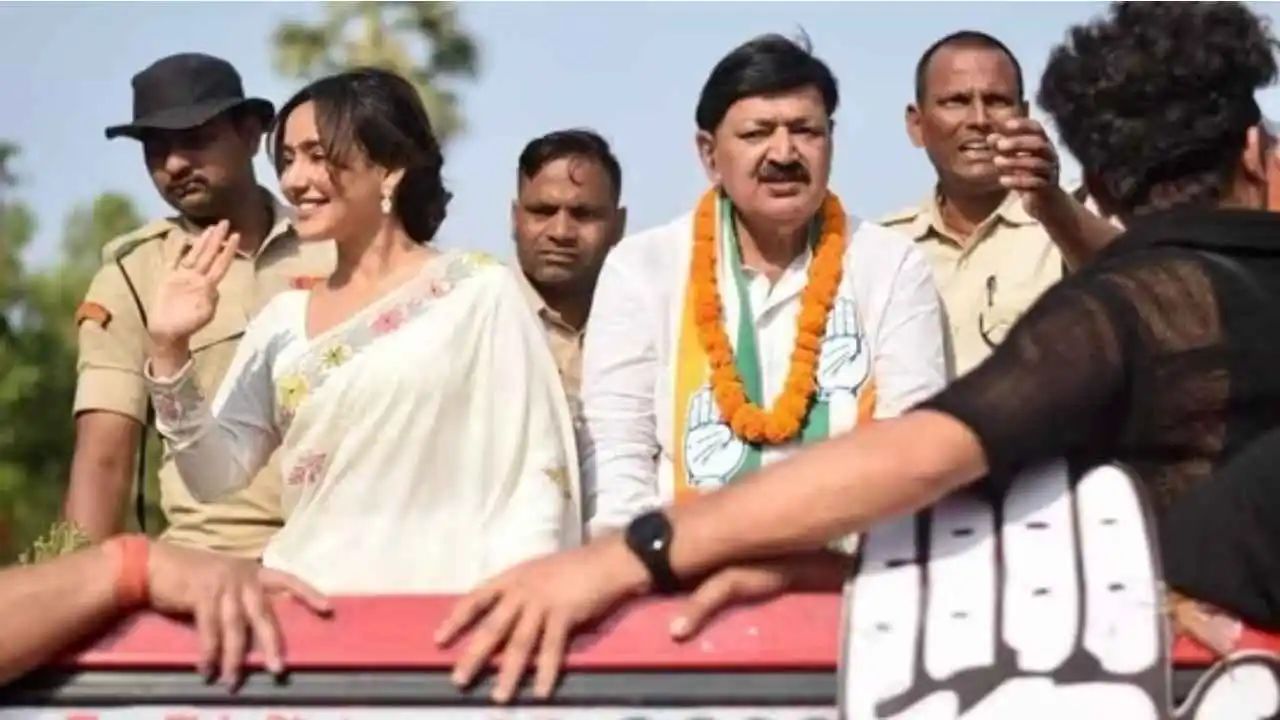
Bollywood actor Neha Sharma’s recent participation in a roadshow in Bihar has taken the internet by storm. Sharma, known for her roles in films like Tum Bin 2 and Crook, was seen supporting her father, Ajit Sharma, who is contesting from Bhagalpur Lok Sabha seat on a Congress ticket. The roadshow came amid speculations that the actor might enter politics. But, it is now clear that she was just campaigning for her father.
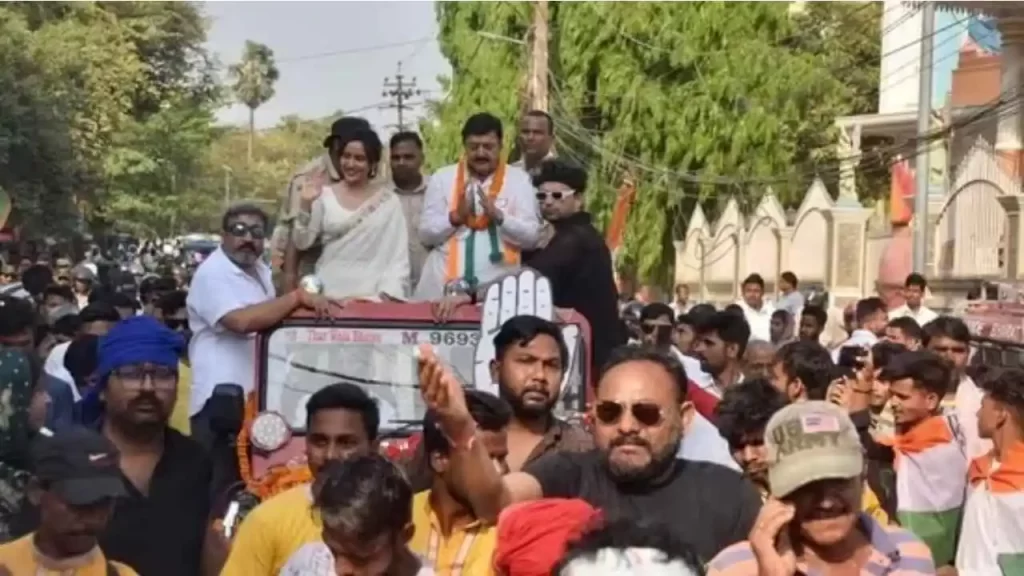
The Bollywood actor posted a video on her Instagram handle which showed her journey through various districts of Bihar, including Kishanganj, Banka, Purnea and Katihar. She was dressed in a traditional salwar kameez and was seen greeting and encouraging the public to cast their votes.
The actor received a warm reception and love from a large crowd in Pirpainti and Kahalgaon during her roadshow. She wrote on Instagram that it is said when someone gives one a place in their heart, then they live there forever. She said her heart is full of all the love and support she was receiving from the people. She thanked the people for the warm welcome she got in Pirpainti and Kahalgaon. Aapka pyar sar ankhon par.
Another video, circulating on social media showed the actor actively participating in her father’s election campaign in Bhagalpur. The election to the Bhagalpur Lok Sabha seat is set to take place in the 2nd phase on April 26. Ajit Sharma is representing the Congress and is up against JDU’s Ajay Kumar Mandal in this seat.
Earlier, there had been rumours and speculations that Neha Sharma might join politics. But many reports have clarified that she is not making her political debut yet. The Bollywood actor had been offered the opportunity to join politics by her father Ajjit Sharma but she is currently focusing on her acting career.
Education
Farmer’s son Nilkrishna Gajare Nirmalkumar from Maharashtra scores 100 NTA score in IIT-JEE Mains 2024
Nilkrishna Gajare’s father is a farmer and had to discontinue his own education after Class 12 as he faced financial difficulties. Gajare faced financial challenges growing up. However, his unwavering dedication and strategic approach to preparation set him apart from the crowd.
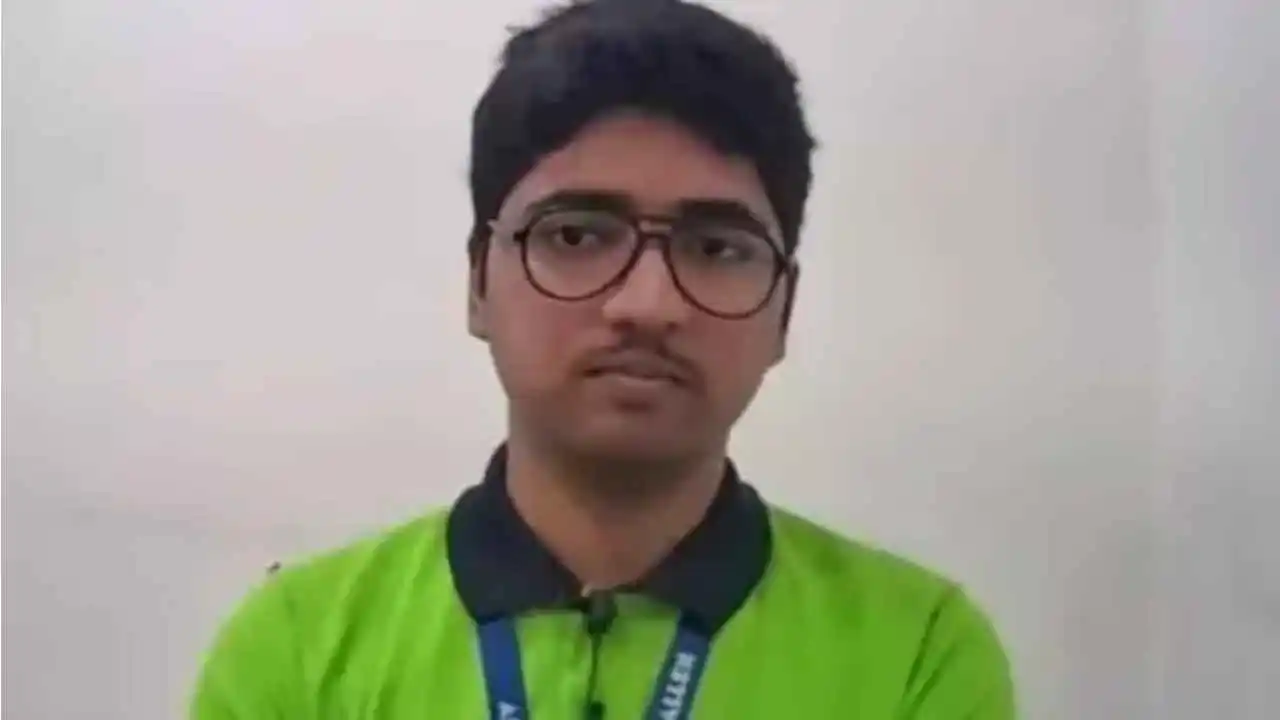
Nilkrishna Gajare, who hails from Maharashtra’s Washim, achieved an extraordinary feat by securing a perfect score of 100 in the JEE Main 2024 examination. His journey from humble beginnings to the pinnacle of success is a source of inspiration for many people.
Nilkrishna Gajare’s father is a farmer and had to discontinue his own education after Class 12 as he faced financial difficulties. Gajare faced financial challenges growing up. However, his unwavering dedication and strategic approach to preparation set him apart from the crowd, which resulted in his remarkable achievement of emerging as topper of one of India’s toughest Engineering entrance exams.
Nilkrishna Gajare had a strategic plan that helped him succeed in IIT-JEE 2024. According to Nilkrishna persistence is important and one should never stop trying until they understand a topic. He said being curious and asking questions are important traits of a good student. He said one should not be ashamed of asking questions.
Nilkrishna spent around 10-15 hours every day studying on his own for the JEE Main exam. He mentioned that he used his class notes for Physics and Physical Chemistry. For organic chemistry and inorganic chemistry, he relied on both notes and practice questions.
As for Mathematics, he believed that practicing regularly was the most important thing for him. Other interests of Nilkrishna include archery. He has participated at both state and national levels, and he finds joy in the sport. He said archery helps him understand the importance of focusing his attention on his goals. Nilkrishna likes watching movies and said they are a great source of enjoyment and relaxation.
He likes to watch a movie after exams and occasionally treats himself to one each week too. Gajare aims to keep up the pace for the JEE-Advanced exam and hopes to get into the IITs. He said he wants to secure admission in IIT-Bombay in the computer science branch.
2024 Lok Sabha Elections
Lok Sabha elections: Samajwadi Party chief Akhilesh Yadav files nomination from Kannauj
The Samajwadi Party has announced Akhilesh Yadav as its official candidate for the Kannauj Lok Sabha seat today
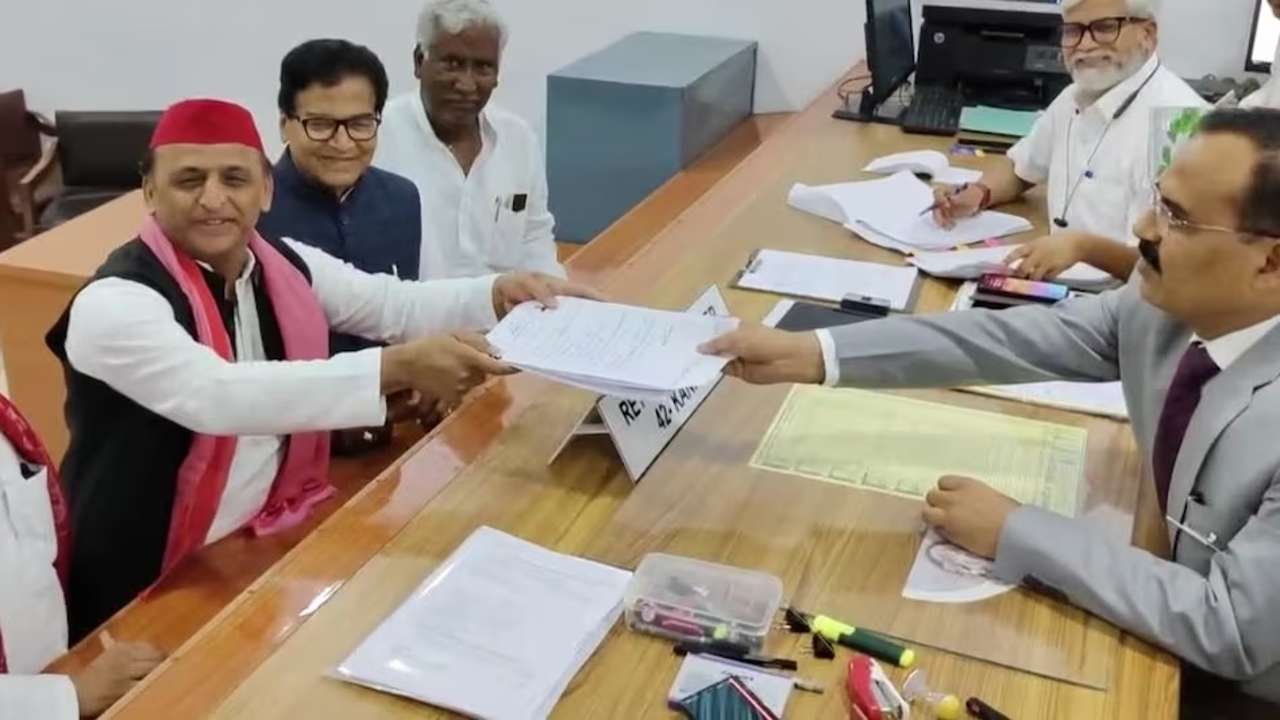
Samajwadi Party (SP) chief Akhilesh Yadav, submitted his nomination for the Kannauj Lok Sabha constituency ahead of tomorrow’s second round of voting. In front of Ram Gopal Yadav and other party leaders, the chief of the SP, who had previously contested the seat in 2000, 2004 and 2009, submitted the nomination.
Speaking with media, Ram Gopal Yadav said that SP would win the seat by a huge margin. The BJP candidate might lose his deposit in the seat, he said.
The Samajwadi Party has completely reversed its earlier plan to field former Mainpuri MP Tej Pratap Singh Yadav as their candidate, which is a significant political development.
Earlier, Akhilesh Yadav told reporters, people will find out when the nomination takes place, in reference to the speculations that he will contest for the seat. The historic victory of Kannauj is the subject of inquiry.
The former chief minister continued, the people have decided that the India bloc is coming as the future and the BJP will be history in this election.
Notably, elections for the Kannauj seat are scheduled for May 13, which would intensify the political drama that is now playing out in Uttar Pradesh. Previously regarded as the Samajwadi Party’s stronghold, the seat was lost by the party in the 2019 election when Subrat Pathak of the BJP won with a resounding victory.
The candidates competing for the following Uttar Pradesh seats will find out their destiny in the second round of voting, which is scheduled for tomorrow, Amroha, Meerut, Mathura, Baghpat, Aligarh, Ghaziabad, Gautam Buddh Nagar, and Bulandshahar.
Notably, two Bollywood celebrities running as BJP candidates in the second round are Hema Malini from Mathura and Arun Govil from Meerut. There are 91 contestants from UP competing in the second phase.
The seats in Gautam Buddha Nagar and Mathura are up for grabs, with a maximum of 15 applicants per seat. In Bulandshahr, six candidates are vying for the presidency. There are twelve contenders running in Amroha, eight in Meerut, seven in Baghpat, and fourteen in Ghaziabad and Aligarh.
1,67,77,198 votes will decide these candidates’ fates.
-

 India News18 hours ago
India News18 hours agoLandslide hits Arunachal Pradesh, highway linking Indo-China border affected
-

 Cricket news11 hours ago
Cricket news11 hours agoTelugu superstar Mahesh Babu meets SRH captain Pat Cummins, says it is an absolute honour
-

 Entertainment17 hours ago
Entertainment17 hours agoBollywood stars Salman Khan, Alia Bhatt, Rekha, Sonakshi Sinha, Aditi Rao Hydari attend Sanjay Leela Bhansali’s Heeramandi premiere
-

 Education16 hours ago
Education16 hours agoFarmer’s son Nilkrishna Gajare Nirmalkumar from Maharashtra scores 100 NTA score in IIT-JEE Mains 2024
-

 India News19 hours ago
India News19 hours agoTamannaah Bhatia summoned in illegal IPL streaming app case, to appear before cyber cell on April 29
-

 Cricket news19 hours ago
Cricket news19 hours agoIPL 2024: Rishabh Pant, Axar Patel score half centuries as Delhi Capitals beat Gujarat Titans by 4 runs
-
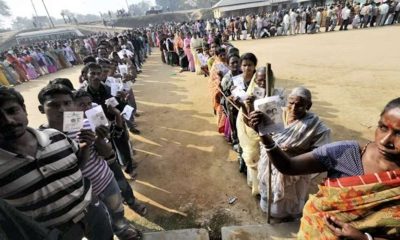
 2024 Lok Sabha Elections17 hours ago
2024 Lok Sabha Elections17 hours agoBihar: Election Commission extends voting timings for 4 Lok Sabha seats due to heatwave
-

 Entertainment14 hours ago
Entertainment14 hours agoAamir Khan to begin shooting in Delhi for Sitaare Zameen Par next month

